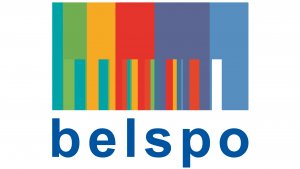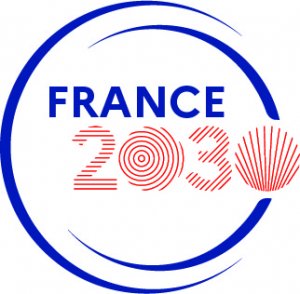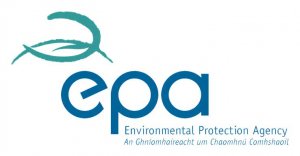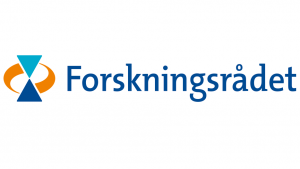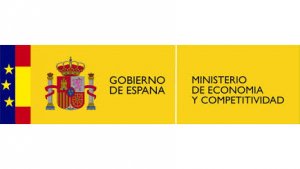AXIS Joint Call for Proposals: Assessment of Cross(X)-sectoral climate Impacts and pathways for Sustainable transformation
The ERA-NET AXIS is a network of 11 funding organisations from 10 European countries that has been created to promote cross-boundary, cross-community research with the overall goal to improve coherence, integration and robustness of climate impact research and connect it to societal needs. To this effect, AXIS aims to bring together international expertise in the areas of this Call for Proposals and work on overcoming boundaries between science communities through inter- or transdisciplinary research projects.
JPI Climate
Most funding partners are members of the Joint Programming Initiative JPI Climate (“Connecting Climate Knowledge for Europe”). JPI Climate is a collaboration of 16 European countries coordinating their programme development in climate research to inform and enable the transition to a low emission, climate resilient economy, society and environment in line with Europe’s long-term climate policy objectives.
The present joint call will be funded by AXIS partners with an indicative budget of 15– 17 Mio. € to support research projects of a duration of three years. AXIS is co-funded as an ERA-NET Co-fund action under the European Union's Horizon 2020 Framework Program (Grant Agreement number 776608). The anticipated national and regional contributions available from each funding agency are listed in Chapter 7. Updates may be published on the AXIS webpage.
AXIS is a successor of the ERA-NET on “European Research Area for Climate Services” (ERA4CS). Both are part of the efforts of JPI Climate to contribute to the implementation of the European Roadmap for Climate Services, in particular by improving “Integration of physical and socioeconomic data and information” (Challenge 3, Activity 3.1a) and “establishing confidence in, and the role of uncertainty in climate services and decision-support systems” (Challenge 3, Activity 3.1c).
Introduction
The recently established UN Sustainable Development Goals (SDGs) as well as the Paris Agreement (PA) adopted by the UNFCCC Conference of the Parties’ (COP) create the authoritative international policy framework for a global transition to sustainability. The Paris Agreement has set ambitious goals to this end. Decisions to reach these goals will have to consider the implications of various mitigation and adaptation options along with impacts of the physical climate at different stabilization levels of greenhouse gas concentrations. Consequently, the demand for more robust information on the integrated consequences of different possible pathways is high.
The objective of this Joint Transnational Call is to broaden the knowledge base that helps guiding societies in their transition to sustainability, in particular through an integrated understanding of social, political and environmental impacts and risks associated with climate change. It aims to contribute to more accurate estimations and better quantified uncertainties with respect to what climate impacts are to be expected for different plausible socio-economic scenarios and for various carbon emission futures and corresponding warming levels. Ultimately, this research shall increase the potential to use climate impact data in operational climate services (e.g. the Copernicus Climate Change Service, C3S) and support adaptation policies to reduce vulnerabilities and increase resilience in future.
Scope
The research approach
AXIS seeks to enhance collaboration across science communities and promote integration of knowledge of a wide range of research disciplines contributing to the understanding of climate change and its impacts on natural systems and society. Integration is a core objective, especially with regard to bridging gaps and crossing boundaries between different bio-physical impact categories or systems, here called „sectors“ and between natural and social sciences as well as humanities working on climate change impacts.
Stakeholder approach
Research on climate impacts should be structurally driven by the demands of decision-makers and stakeholders, and not primarily by model development. At the same time, it needs to attend to the fundamental knowledge gaps that prevent progress in integrated analysis of risks and options associated with climate change impacts and adaptation. Essential components of the proposed projects should therefore be the establishment of potential long-term partnerships, leveraging of existing knowledge networks and project co-design between researchers and stakeholders.
Stakeholders of the projects could be regional to national actors from public or private domains, such as regional and national disaster management agencies, national adaptation planners, finance, and insurance sectors. In some instances, also researchers with e. g. place-based, applied approaches could be stakeholders as downstream users of e. g. model results generated on a higher level. In the case of multi-sectoral projects, representatives of various sectors or disciplines are important users of the (intermediate) project results.
In essence, all projects are expected to give due consideration to an adequate stakeholder involvement in each phase of their projects and give due justification of their approach chosen. Given the variety of topics and degree of maturity of respective research fields the appropriate level of stakeholder engagement for each phase of the project may vary strongly. Ultimately, it should efficiently serve the goal to support the development of climate services and guide sustainable transformation in Europe.
Projects should also demonstrate a significant added-value generated through the international collaboration. This could be, for instance, by generating results and methodologies which are transferable and applicable to large geographic, political or social realms.
Wherever possible, projects should build on and contribute to existing international frameworks, community-driven networks or databases, such as but not limited to:
- the WCRP Coupled Model Intercomparison Project (CMIP), in particular taking into account considerations of the Vulnerability, Impacts, Adaptation and Climate Services Advisory Board (VIACS), a contribution to CMIP6
- Coordinated Regional Climate Downscaling Experiment (WCRP CORDEX)
- Global Framework for Climate Services (GFCS)
- Integrated Assessment Modeling Consortium (IAMC),
- The Inter-Sectoral Impact Model Intercomparison Project (ISIMIP)
- Other relevant sectoral coordination frameworks, such as the Agricultural Model intercomparison and Improvement Project (AgMIP)
- Other international frameworks, community-driven networks or databases in which the applicants areinvolved, whenever their relevance for the call is justified in the proposal.
An important link between the themes of this call and a connecting element between projects will be through the concept of scenarios, i.e. possible future developments of human economic and social activities in interaction with the climate system. The existence of and adherence to well-defined scenarios is an essential element to enable the integration of information produced in traditionally separated disciplinary fields, such as different impact domains or economic sectors.
While supporting the implementation of the Paris Agreement will necessitate development and application of low emission scenarios, for worst case adaptation planning higher end emission scenarios may also be relevant. At the start of projects funded through this call a joint kick-off meeting will be held to enhance consistency and harmonisation between single projects. Applicants should be prepared to align their proposals in this regard.
Projects should build on and contribute to the established framework of “Shared Socioeconomic Pathways” (SSP), which have been developed as a complement of the Representative Concentration Pathways (RCP) scenarios that were previously used in the IPCC context. This combined scenario framework was initiated to facilitate the assessment of the effectiveness and trade-offs or co-benefits of different adaptation and mitigation options, taking into account both biogeophysical and socio-economic aspects.
Improved knowledge of uncertainties is paramount in order to address the challenges of climate change in risk-assessment frameworks. A treatment of uncertainty is therefore regarded as an essential element of proposals. Improved quantitative knowledge regarding different sources of uncertainties may need to be accompanied by qualitative information where quantification is largely infeasible.
Research in the addressed fields could have wide-ranging implications for regional or national decision making in the context of climate change mitigation and adaptation. Therefore, transparency about implicit or explicit value judgements and assumptions within the research approaches and tools is of great importance. To this end, projects are requested to provide research results and generated research data as free and accessible as possibly. A detailed Data Management Plan will need to be submitted at the full proposal stage. Furthermore, the use of open source tools or the opening of research codes in the process of the project - as an effective measure to increase transparency and credibility of the research results - is encouraged.
Thematic Priorities
The scope of this AXIS call is structured into three interlinked them atic priorities (themes):
- Cross-sectoral and cross-scale climate change impact assessments
- Integration of biophysical climate change impacts estimates with economic models
- Developing pathways to achieve the long-term objectives of the Paris Agreement, taking into account interactions with SDGs closely linked to SDG 13 (“climate action").
Who can apply?
This Call is open to all applicants located in countries covered by the 11 participating funding agencies who comply with the national eligibility criteria (see National Annexes ), irrespective of their nationality. Namely, applicants from Austria, Belgium, Germany, France, Ireland, Moldova, The Netherlands, Norway, Spain and Sweden are eligible. Each national/regional funding agency will provide funds directly to their eligible investigators in accordance with the respective agencies’ rules and regulations. Funds provided by the European Commission will be utilized to maximize the number of international consortia being supported through this call.
In this Call applications for advanced multi-disciplinary projects of small to medium size (0.3-2 million €) are expected. Other funding requests are not excluded, but national restrictions have to be also met. Private sector participation is welcome if the participating national funding agency has suitable instruments (see National Annexes).
Cooperation with other countries and international organisations
Participation of project partners from outside the countries already participating in AXIS is possible and encouraged if funding is ensured by own resources (institutional in-kind or other funding).
International organisations (IO) may also be included as partner, but cannot be considered as one of the partners from at least three different countries participating in AXIS (see section ‘Common proposal requirements’). Funding support to IOs is limited to 10% of the overall funding request of a proposal. A stronger commitment of resources of IOs above this limit is possible, but funding needs to be ensured otherwise. In this case a signed letter of commitment will be necessary at the full proposal stage. It is also mandatory that the IO is an eligible funding partner in at least one of the participating countries. Exceptions from these general rules may be decided by the funding agencies on a case by case basis. If you plan to include an international organisation please contact the National Contact Point of the host country or of the agency you are planning to request funding from.
Participation of partners from low-income, or lower-middle -income economy (LIC/LMIC) according to the World Bank listings for LIC or LMIC, who are highly beneficial to the proposals’ goals, may be possible based on national funding regulations of an AXIS partner. Please consult the national annexes for more details.
Common proposal requirements
Proposals should address one or several of the Call Themes. They require eligible partners from at least three different countries participating in AXIS. If the Coordinator of a proposal is not eligible, the AXIS– Joint Call for Proposals entire proposal will not be further considered for the second stage of the evaluation. In order to be selected for funding all partners must be found eligible in the second stage.
All proposals shall demonstrate adequate stakeholder engagement. These aspects are reflected within selection criteria.
Applicants should also describe how information generated in the course of the project will be captured, stored and managed. Plans for long-term archiving and meta-description of data should be detailed, as should the communication and access plans.
Furthermore, consortia shall demonstrate how they take into account sustainability principles in research: i.e. consideration of projects’ climate footprint and contributions to a climate-friendly research system, e.g. in terms of (virtual) meetings, travels and energy use.
Submitting a proposal
A two-step application procedure will be used in this call. Relevant proposal documents (in English, see Annexes) must be submitted electronically by the coordinator by uploading them on the electronic submission system with the following deadlines:
Pre-registration: 18 June, 2018, 17:00 CEST.
Full-Proposal: 8 October, 2018, 17:00 CEST.
The first (pre-registration) step is mandatory for entering the second stage. The information requested at this stage will be used to complete an eligibility check and help find appropriate reviewers for the evaluation of full proposals in the second step. Only eligible pre-registrations will be invited to submit full proposals. Applications which are selected for invitation to submit a full (step-two) proposal will be contacted early July 2018.
Proposals should strictly follow the guidelines given and follow the proposal templates. Further information on how to submit a pre-registration and a full proposal is available in the National Annexes. Note, that in some countries an additional national submission is required.
Programme activities
The funded projects are considered to form part of an international research programme for which joint activities will be organised, including a kick-off meeting at the beginning of the funding period, an interim project conference to promote the uptake of projects results and networking amongst projects and a final meeting to present and disseminate the project results at the end of the funding period. Participants of funded projects should participate in these joint activities. The costs for attendance to joint activities should be included in the budgets of the full proposals.
Project management and reporting
Each of the proposals that will be funded will be required to sign an internal project agreement prior to the start of the project (addressing internal organisation, IPR, settlement of disputes, etc.). Funded projects will be required to submit a mid-term report and a final report on both research progress and financial aspects using a common template. Some funding organisations may request additional specific reports.
Evaluation Process
Evaluation will be made by an independent international Expert Panel (EP). It consists of experts from the scientific community and representatives of relevant stakeholder groups, if appropriate, covering the full range of topics within the scope of the AXIS Call for Proposals. To complement the expertise in the EP, additional external reviewers may be consulted as appropriate.
At least 4 independent experts will evaluate each full proposal.
Evaluation Criteria
Evaluation criteria for the projects are based on the evaluation standards provided by the European Commission.
Excellence
- Relevance to overall Call objectives and to the chosen Theme(s) of the Call
- (Scientific) quality and innovativeness, contribution to knowledge, originality, progress beyond the state-of -the-art
- Soundness of concept and objectives of project
Impact
- Societal relevance and impacts (e.g., relevance for decision making, contributions to societal welfare and well-being, policy related or economic impact, capacity and community building, networking effects)
- Added value of trans-national cooperation
- Level of collaboration between different science communities (between various climate disciplines, biophysical impact sciences and economics; and between natural and social sciences)
- Appropriateness of engagement of relevant stakeholders, awareness of stakeholder needs and transdisciplinary approach
- Transparency of the implementation (including transparency of normative and non-normative assumptions) and conditions of accessibility of research results and tools (“open access”, “open source”)
- Appropriateness of measures for the dissemination and/or exploitation of transnational projects results, and – if applicable - management of intellectual properties
Quality and efficiency of implementation
- Quality and efficiency of the management structure and procedures, its organization and coordination, including the management and sharing of data
- Appropriateness of conceptual approach
- Quality and relevant experience of the individual participants, including inter-disciplinarity and integration potential within partnership
- Quality of the consortium as a whole (including complementarity and representation of different disciplines)
- Appropriateness of allocation and justification of the resources to be committed (budget, staff, equipment), project feasibility and work-plan
Scoring system
0 Not possible to evaluate / Fail
1 Poor
2 Fair
3 Good
4 Very Good
5 Excellent
The minimum threshold for each criterion is set at 3 out of 5 points. Furthermore, the sum of scores should be at least 10 points (out of 15). Proposals not meeting these thresholds will not be ranked, and not be considered for funding.
Final selection will depend first on the overall score reached in the evaluation, second on funding availability. In case a proposal is selected for funding, a negotiation phase will be made with the relevant funding organisations to take into account recommendations, including budget aspects. Please note that no appeal can be brought to challenge the evaluation results or decisions of the AXIS funding agencies.
Expected Timeline
- Deadline for pre-registrations: 18 June 2018, 17:00 CEST
- Invitation for full-proposals: Beginning of July, 2018
- Deadline for submission of full proposals: 8th October 2018, 17:00 CEST
- Communication of final results of the selection process: February 2019
- Earliest Start of Projects: 1st July 2019
- Latest Start of Projects: Mid September 2019
Funding
For this call a total amount of 10.5 to 12.3 M€ has been provisionally reserved by the participating funding organisations. The European Commission will also provide funding for the funded projects depending on the final total funding amount for research proposals by the participating funding organisations eligible for EC funding.
The indicative total budget for this call is thus of 15.7 to 17.5 M€.
Indicative budgets for each funding organisation are given below. Each participant in a funded project will be preferentially funded by his or her national/regional funding organisation(s) participating in the call. The additional funding provided by the EC for the funded project will be distributed through the H2020-eligible national/regional funding organisations.

